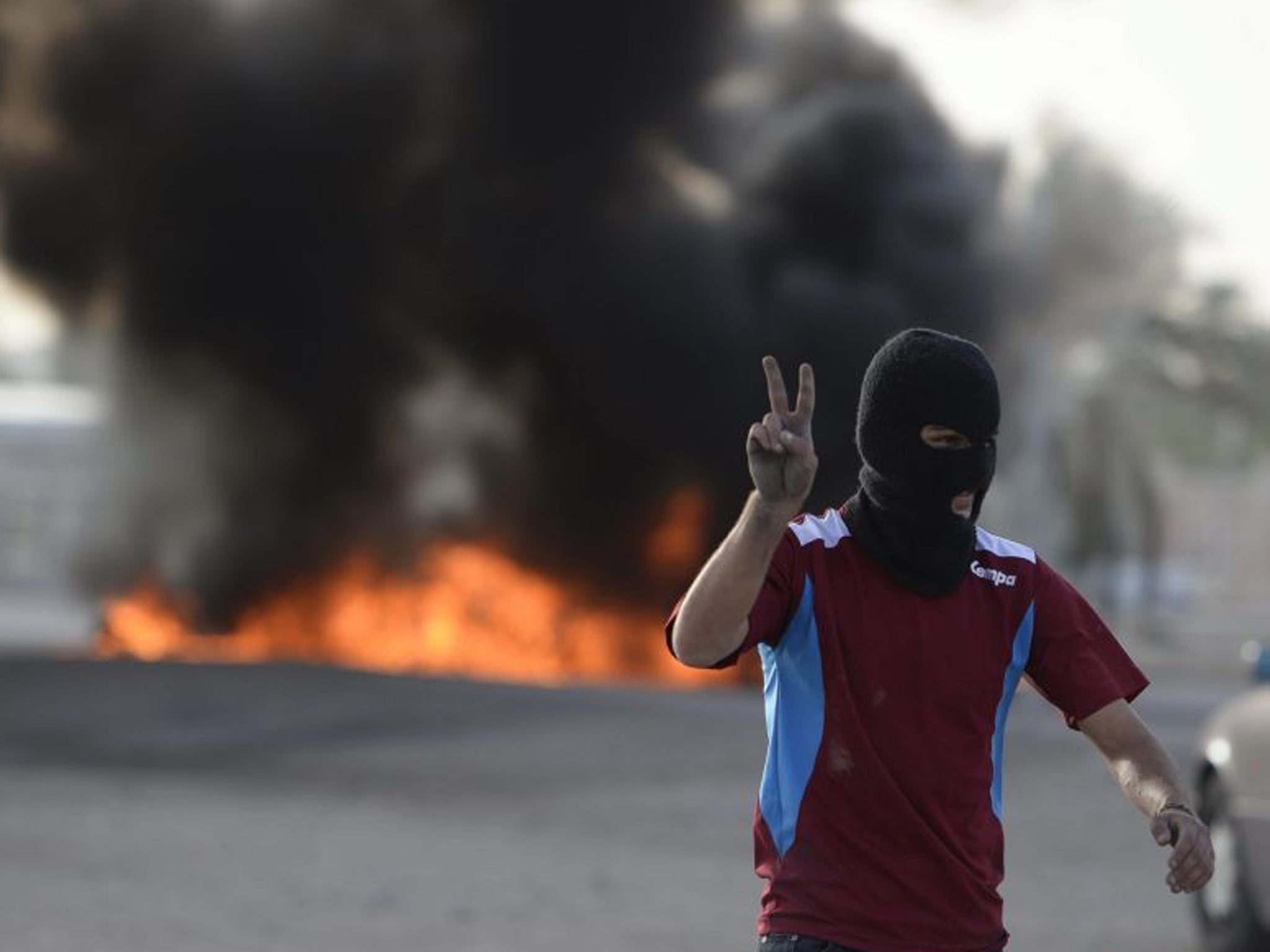Bahrain F1: What happens when the cameras are gone?
Should it matter that two years later, despite ongoing, grave and widespread human rights violations, the Formula One is returning to Bahrain?

Should sports and human rights be interlinked? In February 2011, hundreds of thousands of people in Bahrain took to the streets to demand self-determination, rights, and dignity.
Their basic demands were met by the regime’s horrifically violent crackdown, backed by its Gulf Cooperation Council (GCC) and international allies. Two years later, the most prominent human rights defenders in the country remain behind bars, some of them denied family, lawyer, and hospital visits for over a month. Today, jails contain hundreds of political prisoners, excessive use of force takes place against protesters on a daily basis, reports of torture persist, hospitals are still militarized, and the culture of impunity continues. But why is any of this relevant to the Grand Prix race?
It matters for two main reasons.
The first is that holding the Formula One race in Bahrain causes human rights violations to occur. A year ago, BCHR president Nabeel Rajab (now in prison) and colleague John Lubbock wrote a joint article in the Guardian about human rights violations that occurred inside the Bahrain International Circuit; violations which continue to go without accountability. In the past week there have been around 60 arrests, most made in residential areas close to the Formula One circuit, and people are tear-gassed inside their homes. Security forces attacked 4 different high schools, like Jabreya Secondary School for Boys, conducting arrests and tear-gassing students. Despite the presence of cameras, a protester was caught on camera being beaten then arrested by security forces in Sanad in broad daylight. The practice of severely beating protesters, and the use of unofficial torture centers in Bahrain has been ongoing for more than a year now. All this is an attempt to downscale protests during the race period, meaning that for the Bahrain Grand Prix to take place, something resembling martial law is required.
The second reason is that the people of Bahrain are calling for it to be cancelled, as are local and international NGO’s, because the regime is attempting to use it for the political whitewashing of their ongoing human rights violations. Hosting the Formula One Race in Bahrain sends a message of “everything is back to business as usual”. The regime’s constant use of words like “terrorists” and “vandals” to demonize its critics is part of its campaign to push aside calls made every day for democracy as the regime continues its violent crackdown. These are terms used by the chairman of the Bahrain International Circuit, Zayed AlZayani. Hundreds, if not thousands, of Bahraini’s have taken to the streets calling for the cancellation for the Formula One race, but to no avail. Their calls fell on deaf ears as security forces attacked them with teargas, stun grenades, and birdshot pellets.
Justin Gengler wrote in his Foreign Policy article “Who Needs the Bahrain Grand Prix” that:
“..the race, hosted not far from Sakhir Palace, was conceived mostly as a diversion for society's elite, and aptly demonstrated the misplaced social and economic priorities of the ruling family.”
There are those who say that the Formula One should not be canceled, but instead used as an opportunity to get media attention for the situation on the ground. It is true that media attention is not only appreciated, but also crucial to improving the situation on the ground in Bahrain. The question is not whether Bahraini’s benefit from the media attention which will highlight their plight as they continue their struggle for rights and freedoms, but rather what takes place during the race - and more importantly, what happens after the cameras are gone.
Salah Abbas Habib was well respected amongst the protesters. He was a father of four young children, and their only provider. During last year’s race, he was stopped by security forces, severely beaten, and shot with pellets. His dead body was found the next morning.
A group of minors were arrested in April 2012 in preparation for the Formula One. Some of them were thrown off the roof of the house they were in. They were reportedly severely beaten, which in some cases amounted to torture. They remained in prison until June that year. Some are currently in hiding, because they are wanted by authorities. Others are in prison after getting sentenced. The plight of these minors did not stop with the end of the race.
On the afternoon of the April 18, 2013, security forces arrested four children in Bani Jamrah. One of these children was 13-year-old Mahdi Salah Al-Khawaja. When Mahdi was just 11 years old, security forces pointed a gun to his face as they raided his family home. He then watched as his father was beaten severely, taken up to the roof, thrown off, then taken away. His mother was taken into a room and sexually assaulted. His father was subjected to severe torture then sentenced to 5 years imprisonment, which he continues to serve today. Mahdi has been traumatized for two years, and today he was arrested, hit on the head and held at a police station for several hours.
The question then, is not whether the media attention accompanying the race is important or not, the question is who will compensate the victims of this race for the price of getting that attention? When the cameras are gone, the crackdown intensifies as revenge, and the world is no longer paying attention; who will take care of Salah Ali’s children? Who will provide a safe place for the minors on the run? And who will hold Mahdi’s hand if he’s afraid of the dark?

Join our commenting forum
Join thought-provoking conversations, follow other Independent readers and see their replies